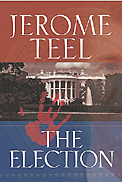Sexual predators often fly under the radar at church
Posted: 6/08/07
Sexual predators often fly
under the radar at church
By Hannah Elliott
Associated Baptist Press
EW YORK (ABP)—Most people think they can spot a sexual predator. He’s the pale loner with greasy hair and quivering lips or the grinning lech who hugs too long and slowly rubs the backs of female co-workers—or church members.
Could be. But for every overt pervert, there are plenty more who go unnoticed—and unsuspected.
Predators gravitate to vulnerable people. They move into places where they are the highest authority and where that authority remains unquestioned. In some cases, that place is the local church.
Experts say there is no standard profile of a predator, no personality trait or background history that would link them in one group. Rather, predators have similar behavior patterns and desires, no matter whom they victimize. Pastors who have affairs, for instance, are much different from those who molest children. The former are morally wrong but usually not criminals. The latter are both.
Some experts insist philandering men typically fall into two categories. The “wanderer” gets emotionally involved with a woman, crosses boundaries, gives in to temptation and regrets it later. The “predator” actively looks for vulnerable women, takes advantage of them and moves on to other victims.
Whether with a vulnerable woman or a naïve child, however, the abuser always breaks a bond of trust. And while there’s no unique predator profile, in the end, they’re all the same— abusers rarely offend once, whether or not they planned the event and whether or not they regret it.
“We have this feeling that we could pick out a child molester in the crowd, but they look like your average, normal, trustworthy person. Sometimes they look more-than-average trustworthy,” Dave Mallinak, pastor of Berean Baptist Church of Ogden, Utah, said. “Another thing is we have this conceit that we could pick out a liar from a crowd—that I would know if someone is lying to me.”
Mallinak should know. He is working on a book for pastors counseling sex-abuse victims and has spent years tracking a former pastor whom he said molests teens in local churches before church leaders find out and fire him. Mallinak recently outed the accused pastor on his blog, sharperirony-.blogspot.com.
The naiveté of people who think they can discern a liar coupled with the trust people give to pastors can be a dangerous combination, Mallinak said.
“They become good liars,” he said. “Of course, we naturally want to trust our pastor and believe him, but once they’ve crossed that line, telling a lie is certainly not a hard thing.”
Gregory Sporer, an author and founder of Keeping Kids Safe Ministries, has spent almost 20 years counseling both abusers and the abused.
Staff or church member sex-offenders have two weaknesses, he said. The “give-away categories of behaviors” are boundary violations and generally suspicious behaviors. Most church offenders have months of boundary violations, or “grooming,” prior to the first sexual offense. They’ll choose children who seem emotionally vulnerable and gain their trust with seemingly innocuous contact. For most, he said, it’s a gradual spiral down from there.
“Pastor sex-offenders are not mentally ill, and they rarely have a criminal history,” Sporer said. “Christian men and women do not become sex-offenders overnight. For many, it starts with porn or an emotional bond with a teen or child, and over a period of time, a secret sexual sin with the teen or child emerges.”
Many predators start out as men or women addicted to porn or inappropriately attached to specific children, Sporer said. And according to Sexual Abuse, a Journal of Research and Treatment, church attendance and religious practices in sexual offenders is positively related to the number of their victims and the number of their sexual offense convictions.
Sporer said in his 35,000 hours of sex-abuse counseling, he has seen that dynamic multiple times.
“Some use adult porn, which may lead to teen porn,” he said. “Eventually, the porn doesn’t meet their sexual needs, and they look for teens or kids. Some pastors … develop emotional attachments to kids. Eventually the emotional attachments become sexual, and a child is molested.”
The cycle of pornography leading to abuse grows darker and deeper on a gradual basis, Sporer said, noting many offenders reported hating sex offenders before they became one.
What’s more, many predators report that after each offense, they would go weeks avoiding their victims, have intense self-loathing, increase Bible reading and beg God to “take their sin away” so they don’t go to jail.
And contrary to popular opinion, many sexual abusers were not themselves abused.
In the 1980s, Sporer said, several reports claimed most sex offenders were molested as children. It was used as an excuse for the chain of abuse, he said, but times have changed since then, especially with increased use of the polygraph test.
“Offenders thought they gained more sympathy if they lied about being molested as a child,” Sporer said. “There are some offenders with a history of being molested as a child, but it is not as significant a number as once thought.”
What is significant is that all clergy predators seem to desperately need what they abuse their position to get—power, pleasure, admiration and autonomy.
Mallinak, who became outraged when he saw a former pastor grope teen girls, said the pastor was obviously taken with the pursuit of pleasure and idle amusement. He also loved to be admired, Mallinak said.
“There was something intoxicating about the adoring eyes of his followers,” Mallinak said, adding that even he looked up to the pastor as a hero. Sadly, Mallinak later wrote on his blog, the pursuit of admiration “is like a tapeworm. It is always eating and never filled. A man who craves admiration, no matter how much he gets, will never be satisfied.”
The root of that commonality is sin, Mallinak tells his congregants. It’s not a “fundamentalist” problem or an organizational problem, he said. “It comes from (the predator’s) own flesh.”
Even though the cause of the abuse comes from within, historic Baptist autonomy can be a problem in tracking predators, experts agree. For Mallinak’s Utah congregation, which is an Independent Baptist church, “ultra-autonomy” is something of which to be proud. Predators take advantage of that, he said.
That tension between Baptist autonomy and accountability is one factor in learning to profile predators. Another is the question of whether predators can be rehabilitated.
Mallinak said all predators should spend the rest of their life in jail or “something more severe than that.” In his opinion, predators must never be allowed back in the pulpit in any capacity, since they have “violated a trust and are incurable.”
“Repentance—genuine repentance as opposed to the kind that demands that everybody forgive me right now—would involve a confession that what he did has limited his future,” Mallinak said. “In other words, if he really repented, then he would never seek another pulpit.”
Sporer, on the other hand, has called the idea that sex offenders do not change a “myth.” According to him, many of the 550,000 registered sex offenders in the United States attend church. Most of the church-attenders claim to be Christians with a strong desire to serve Christ, and most offenders who have been convicted and are registered are successful at not re-offending, according to a 2001 report by the Center for Sex Offender Management. The report said the average sex-offence recidivism rate, defined as re-arrest or reconviction, was 12 percent for child molesters over a five-year period.
Mallinak tells embittered victims that clergy predators are counterfeits who stand in the place of a real pastoral shepherd.
“When a pastor violates their trust … I think we have to remember that this is why we need Jesus Christ. This is exactly the reason. We have to rest on his grace and rely on that,” he said. “If it weren’t for the grace of God, none of us would make it.”





